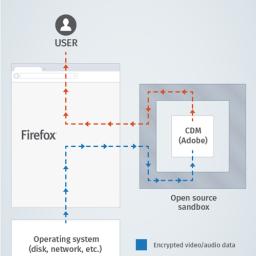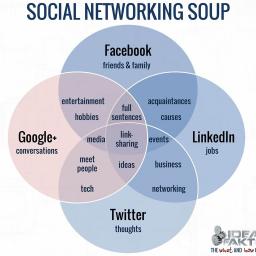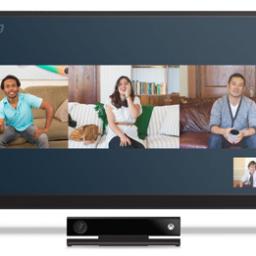Hey, what the heck? There aren't enough submissions in the Pipedot queue? I'm outta here! (storms out of the room) #iamgoogle This is a lesson in how to make a hashtag out of yourself (and make a fool of yourself, too). Read the NYPost article and find descriptions of this guy that include "boor, mean, inconsiderate, smug, self-important, jerk, hissy-fit, and of course, douchenozzle.
Nice work, Scott Jenson, Google executive.

If you've missed the trendwagon for cloud computing, don't worry, it's
already passi(C) . Cisco has been thinking deeply about the limitations of the cloud server approach, which for better or for worse still remains just a variation on the classic server-client relationship.
Modern 3G and 4G cellular networks simply aren't fast enough to transmit data from devices to the cloud at the pace it is generated, and as every mundane object at home and at work gets in on this game, it's only going to get worse. Luckily there's an obvious solution: Stop focusing on the cloud, and start figuring out how to store and process the torrent of data being generated by the Internet of Things (also known as the industrial Internet) on the things themselves, or on devices that sit between our things and the Internet.
Marketers at Cisco Systems Inc. have already come up with a name for this phenomenon:
fog computing. Added bonus: clouds bring rain and unhappy weekends. But fog brings
vampires .

Georgio Venturi over at the Ubuntu User Experience Blog posits that the browser as we currently know it
can't go on in the smartphone age . OK, fair enough: a traditional browser on a smartphone isn't going to be a great experience.
With the unstoppable rise of mobile apps, some pundits within the tech industry have hastily demoted the mobile web to a second-class citizen, or even dismissed it as 'dead'. Who cares about websites and webapps when you can deliver a superior user experience with a native app? Well, we care because the reality is a bit different. New apps are hard to discover; their content is locked, with no way to access it from the outside. People browse the web more than ever on their mobile phones. The browser is the most used app on the phone, both as starting point and a destination in the user journey.
Venturi goes on to describe innovations to the
Ubuntu phone browser interface that make it more useful. Not exactly the only new browser out there though, so I don't get all the fuss.
LinkBubble ,
Opera ,
Dolphin , and others all make alternative browsers that try to improve the user experience on a phone. Why all the hubbub?

You were wondering why your cable TV bill seems to be out of control? Because it is. That's the conclusion of a major FCC study that has just ended: the price of cable packages has been rising at
triple the rate of inflation . From the study:
[B]asic cable prices increased by 6.5% throughout 2012 while expanded basic cable prices rose by 5.1% over the same period. In contrast, the general rate of inflation as measured by the Consumer Price Index throughout 2012 was just 1.6%, meaning that basic cable prices rose at more than four times the rate of inflation in 2012 while expanded basic cable prices rose by more than three times the rate of inflation.
Sound bad? It gets worse. Keep reading over at
BGR , and then take the TechCrunch
Four Step Plan for cutting the cord. Screw you, cable.
Dice Holdings, the company that now owns Slashdot and runs specialty job boards, seems to have hit a rough patch. An article from earlier this month reports Dice Holdings is
trading down by 4.1% due to disappointing earnings. Yahoo's
stock charts don't make it look like the situation is too bad, but look to Dice's CEO for guidance and you'll be surprised. Turns out Scott Melland is feeling bearish and
recently sold over $500,000 in Dice stock. Here is the
transcript of the earnings call, in which they unleash the bad news about Dice earnings.
Personally, I recommend they plaster Slashdot with
more obnoxious banner ads .

Video streaming sites, such as Netflix and Hulu, have traditionally used non-free plugins, such as Flash and Silverlight, to perform DRM functions. Interest to move these services to the new HTML5 video tag, however, requires a mechanism to handle the DRM naughty bits. The W3C EME specification describes such a beast, but involves a non-free CDM binary.
Here is Mozilla's take on the matter.
Like the Internet? Get ready to start talking about the way it was in the "Good old days." If the new proposed changes to the principle of network neutrality take hold, the future Internet of classified traffic and preferential speeds threatens to do irreparable damage to the Internet we know and love.
Mozilla has proposed some solutions that are under consideration (or are they?). The Atlantic proposes
we step back and reboot the debate with a fresh look at what's important. And it's gotten more political than ever now, as
Democrats and Republicans have taken sides over the FCC's proposal .
Time for the big companies to say their piece then, too, and they have:
they hate Wheeler's proposal .
Do you care about net neutrality? Do you know the facts? Now is a good time to
make this the next SOPA with the equivalent of a blackout. Look to Brad Feld for a good idea: he proposes we
demo the slowlane , and show Americans exactly what the end of network neutrality means for the average punter's online experience. I think it's an awesome idea.

This is either the age of social networking, or it's not. It's either the future, or it's already a has-been. What the heck is going on?
Forbes has printed a thoughtful article on
why Google Plus has failed to thrive . The Atlantic has written a piece suggesting
Twitter is on the decline . Facebook's interest among teens seems to be slowing, while their
"page reach" is down by 50% .
So, what's going on? Is it because, post-
Snowden , everyone is tired of being spied on? Has everyone moved on to cooler platforms? Has everyone ditched social networking and
gone back to Usenet ? Is it possible, as one author suggests, that
privacy is now overtaking sharing on the 'Net? Or has everyone just found something more productive to do, like work in the garden?
[Note: this article has been cross-posted nowhere else. :) Want to comment? Here's the place.]
Privacy Badger, a new tool from EFF to combat online tracking and spying, is in alpha release and
looking for testers: EFF is launching a new extension for Firefox and Chrome called Privacy Badger . Privacy Badger automatically detects and blocks spying ads around the Web, and the invisible trackers that feed information to them. You can try it out today.
Interestingly, the announcement of the alpha release of Privacy Badger came the same day that news broke regarding
Yahoo's decision to no longer respect users' "Do Not Track" browser settings.
Privacy Badger , which is based on the Adblock Plus code, is available for
Chrome and
Firefox . The source for each is available on github and any bugs found should be filed against the relevant
Chrome or
Firefox repositories.
[This story is also being discussed on Soylent ]
Hurray for the free market and its few remaining giant members.
Because of pressure from Google Hangouts, which has offered free group video calls for a while now, Skype has announced they'll begin rolling out free group video calls. Unfortunately they're starting with desktop clients first.
Lifehacker has a brief writeup
here , with more information available via the
Skype blog .
This is good news for me since I have an Android phone on which I've thus far completely avoided registering a Google account (though I was just about to, since I found out that you can do two-way Hangout chat with a GMail address but WITHOUT having to succumb to Google+).
This is a nice alternative for those who'd rather sell this part of their identities to Microsoft instead of Google, and who have still managed to avoid the incessant +ing of Google.
Score one for heterogeneity.
[Ed. note: Coincidentally, this comes very close on the heels of Google pulling back on Google+ and supposedly moving its Hangouts dev team to Android.]





